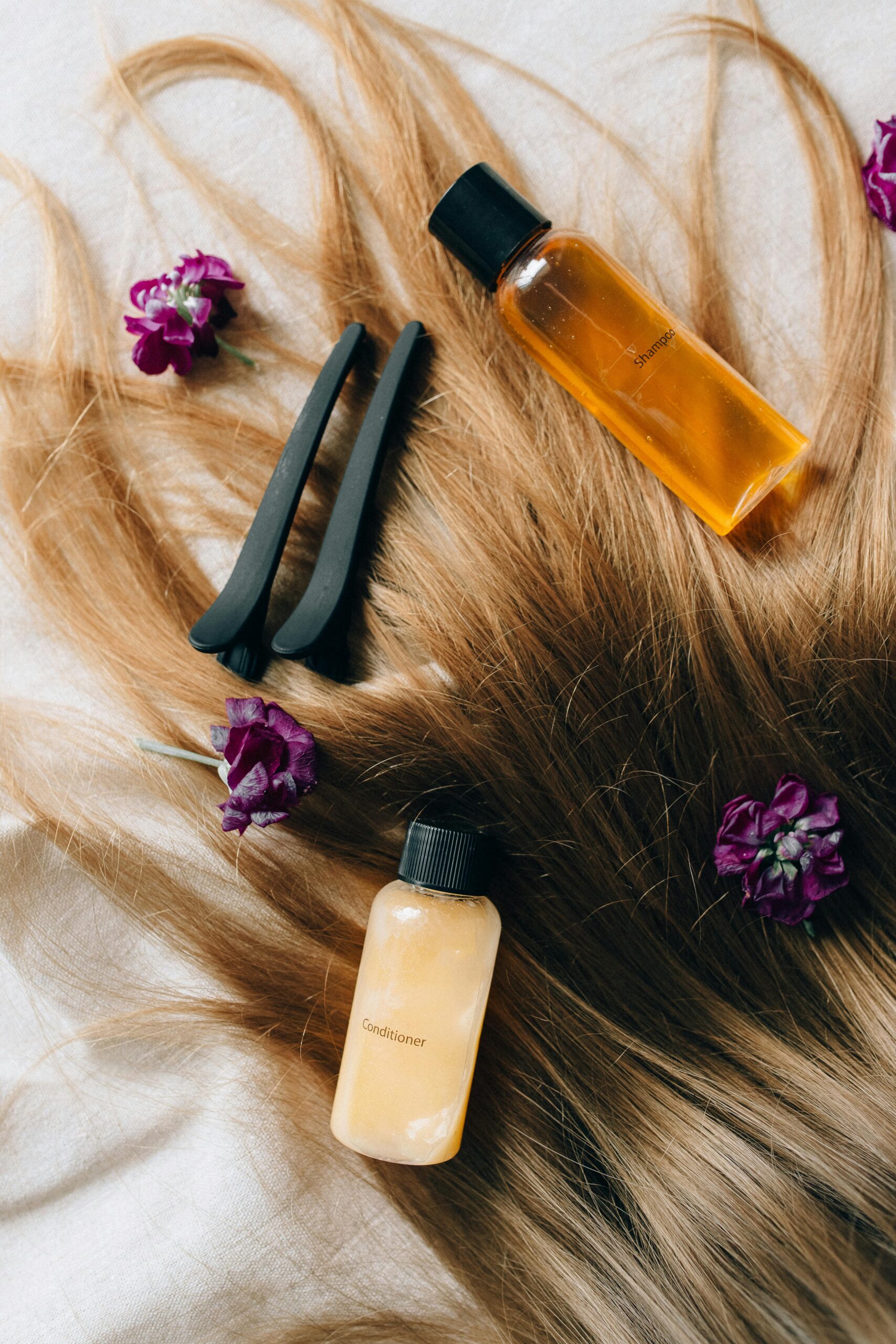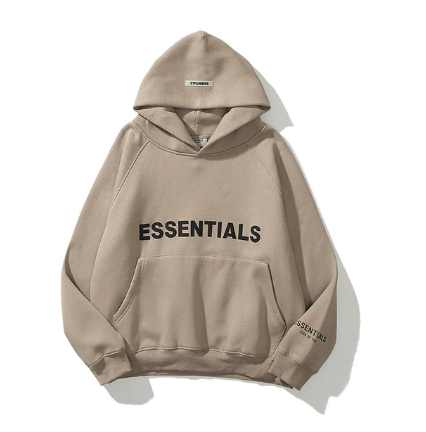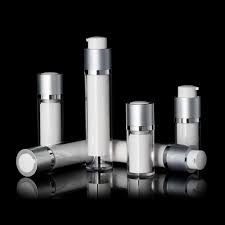Understanding Hair Oils
Hair oils are concentrated formulations derived from natural sources such as plants, seeds, and nuts. They have been used for centuries in various cultures to nourish, protect, and beautify hair.l Rich in essential fatty acids, vitamins, and antioxidants, these oils penetrate the hair shaft to provide moisture, enhance shine, and reduce frizz.
Types of Hair Oils
Coconut Oil: Known for its deep conditioning properties, coconut oil penetrates the hair shaft to prevent protein loss, making it ideal for damaged hair.
Argan Oil: Often referred to as “liquid gold,” argan oil is rich in vitamin E and fatty acids, promoting moisture retention and shine.
Olive Oil: A versatile oil packed with antioxidants, olive oil is excellent for moisturizing dry hair and controlling frizz.
Jojoba Oil: Similar in composition to natural sebum, jojoba oil helps balance oil production on the scalp while providing hydration.
Castor Oil: Known for promoting hair growth, castor oil nourishes the scalp and strengthens hair.
Benefits of Using Hair Oils
Incorporating hair oils into your hair care routine offers numerous benefits, including:
Deep Conditioning: Oils penetrate the hair shaft, delivering moisture and nutrients that promote softness and manageability.
Frizz Control: Oils create a barrier against humidity, preventing frizz and flyaways for a polished look.
Enhanced Shine: Regular use of hair oils can significantly enhance the natural shine of your hair, making it look healthier and more vibrant.
Scalp Health: Many oils possess antibacterial and antifungal properties that can help maintain a healthy scalp, preventing issues like dandruff.
Protection Against Damage: Oils can shield your hair from environmental stressors, heat styling, and chemical treatments, minimizing damage.
Hair Growth: Some oils, like castor oil, are known to stimulate hair growth by improving blood circulation to the scalp.
The Power of Hot Oil Treatments
Hot oil treatments are an excellent way to rejuvenate your hair and enhance its health. This method involves warming your chosen hair oil and applying it to your hair and scalp. The heat opens up the hair cuticles, allowing the oil to penetrate more deeply and effectively.
Benefits of Hot Oil Treatments
Intense Moisture: The heat helps to deliver deep hydration, making your hair softer and more manageable.
Improved Elasticity: Regular hot oil treatments can increase your hair’s elasticity, reducing the risk of breakage.
Scalp Nourishment: The warmth promotes blood circulation in the scalp, encouraging healthy hair growth.
Relaxation: The process can also be a soothing and relaxing experience, reducing stress and enhancing your overall well-being.
How to Perform a Hot Oil Treatment
Choose Your Oil: Select an oil based on your hair type and needs. For example, coconut oil for dry hair or argan oil for frizz control.
Warm the Oil: Heat the oil slightly until it’s warm but not too hot to touch. You can use a microwave or a double boiler.
Apply the Oil: Section your hair and apply the warm oil to your scalp and hair. Massage it gently to stimulate blood circulation.
Leave it On: Cover your hair with a shower cap and leave the oil on for at least 30 minutes. For a more intense treatment, consider leaving it on overnight.
Wash it Out: Rinse the oil out with shampoo and condition as usual.
Choosing the Right Hair Oil for Silky Hair
Selecting the right hair oil is crucial for achieving the desired results. Here are some tips to help you choose:
Identify Your Hair Type: Different oils cater to different hair types. Hair Oil for silky hairs For example, fine hair may benefit from lighter oils like argan or jojoba, while thicker hair may need the richness of coconut or olive oil.
Consider Your Hair Concerns: If you struggle with dryness, opt for moisturizing oils. If you want to promote growth, consider castor oil.
Look for Natural Ingredients: Choose oils that are cold-pressed and free from additives or synthetic ingredients for the best results.
Read Reviews: Look for feedback from others who have used the product to gauge its effectiveness.
Body and Hair Natural Oils: The Best of Both Worlds
Many natural oils can be used for both body and hair care, making them versatile additions to your beauty regimen. For example, oils like almond oil and argan oil provide hydration and nourishment to both hair and skin.
Benefits of Dual-Use Oils
Cost-Effective: Purchasing multi-purpose oils saves money and space in your beauty cabinet.
Streamlined Routine: Using the same product for hair and body simplifies your beauty routine, making it easier to incorporate into your daily life.
Natural Ingredients: Many dual-use oils are derived from natural sources, providing a gentle and nourishing option for both hair and skin.
How to Incorporate Hair Oils into Your Routine
Integrating hair oils into your routine doesn’t have to be complicated. Here are some practical tips to help you get started:
Daily Use
- Pre-Styling: Apply a small amount of hair oil to your hair before styling to protect against heat damage and add shine.
- Frizz Control: Use a few drops of hair oil on dry hair to tame frizz and add a polished finish.
Weekly Treatments
Hot Oil Treatment: As discussed earlier, schedule a hot oil treatment once a week to maintain optimal hair health.
Oil Mask: Mix your favorite oils with a natural hair mask for an intensive treatment that nourishes your hair from root to tip.
Scalp Care
Scalp Massage: Use hair oils for scalp massages to promote blood circulation and improve scalp health.
Overnight Treatment: Apply oil to your scalp and hair before bed for an overnight treatment. Cover with a shower cap to avoid staining your pillow.
Are there any oils to avoid?
A4: While most oils are beneficial, some may cause buildup if used excessively. It’s best to avoid mineral oil and silicone-based products.
Conclusion
Transforming your hair routine with oils can lead to significantly healthier, shinier, and more manageable hair. From the nourishing effects of hot oil treatment to the versatility of body and hair natural oils, the possibilities are endless.




